Press the Easy Button
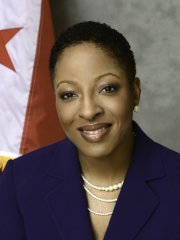 Since the Office of Open Government opened its doors three years ago, we have solidified our standing as a go-to resource for District Government on Freedom of Information Act (FOIA) compliance, government transparency policies and legislation, and Open Meetings Act enforcement. And although compliance is a big part of our mandate, it is equally important to all of us here at the Office of Open Government that we help make your jobs a little easier by providing advice on processing those tough FOIA requests, publishing meeting dates and agendas, or getting you the tools you need to provide access to our government in the most efficient ways possible. Our aim is to make our government easy to navigate, and easy to engage.
Since the Office of Open Government opened its doors three years ago, we have solidified our standing as a go-to resource for District Government on Freedom of Information Act (FOIA) compliance, government transparency policies and legislation, and Open Meetings Act enforcement. And although compliance is a big part of our mandate, it is equally important to all of us here at the Office of Open Government that we help make your jobs a little easier by providing advice on processing those tough FOIA requests, publishing meeting dates and agendas, or getting you the tools you need to provide access to our government in the most efficient ways possible. Our aim is to make our government easy to navigate, and easy to engage.
We hope you enjoy this first edition of the Opengovist newsletter. In it, you will find information on legal and policy trends on government transparency, opinions issued by the Office of Open Government, upcoming training dates, and Curtain Call – a special section highlighting those agencies that are putting open government practices to good use.
Don’t forget to give us a shout. We want to hear from you. The Office of Open Government is a small, but intrepid group of three people (me included), so let us know when an agency or public body is doing open government the right way, or if there is something we can do better.
Onward!

Freedom of Information Act
Kirby Vining v. Council of the District of Columbia, 2016 D.C. App. LEXIS 197 (D.C. June 9, 2016), is the most recent local FOIA decision construing the applicability of D.C. Official Code §2-534(a)(6), or “Exemption 6”, which provides a FOIA exemption for information specifically exempted from disclosure by other statute. The court held that the Legislative Privilege Act of 1975 (Act) (D.C. Official Code § 1-301.42), which prohibits the questioning of Councilmembers for any speech or debate made in the course of their legislative duties; “cannot be invoked through Exemption 6 so as to permit the Council to withhold documents responsive to a FOIA request.”
In its July 5, 2016 decision, the U.S. Court of Appeals for the District of Columbia Circuit held in Competitive Enterprise Institute v. Office of Science and Technology Policy, 2016 U.S. App. LEXIS 12357 (D.C. Cir. July 5, 2016), that an agency may not shield its records form FOIA’s search or disclosure requirements by storage of the records in a private, nongovernmental email account which is under the head of the agency’s control.”
Legislative Update
The FOIA Improvement Act of 2016 (S. 337) was signed into law by President Obama on June 30, 2016. The new law institutes a number of FOIA reforms, including requiring a central portal for agencies to receive and process FOIA requests.
learn more...Much of what is now the federal law is included in B21-0557 Strengthening Transparency and Open Access to Government Amendment Act of 2016.
learn more...Hearings
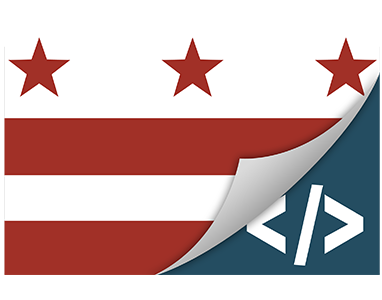
The OOG’s testimony opposes provisions of Bill 21-0697
On July 6, 2016, OOG Director Traci Hughes, Learn more
Bill 21-0697. On July 6, 2016, OOG Director Traci Hughes, Esq., was one of several witnesses to provide testimony before the D.C. Council’s Committee on Housing and Community Development in opposition to provision in Bill 21-0697, the “ANC Omnibus Amendment Act of 2016.” Among other things, provisions within Bill 21-0697 provide for secret ANC ballot voting, and excludes ANCs from the definition of “Agency” for compliance with FOIA. The OOG’s opposition is well founded as the provisions stand in stark contrast to “the public policy of the District of Columbia that all persons are entitled to full and complete information regarding the affairs of government and those who represent them.” (D.C. Official Code §§2-531, 2-572).
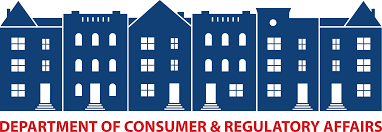
OOG Opinion On DCRA Compliance with of D.C. Official Code § 2-536(a)(8)(a)
Jan. 29, 2016 OOG Opinion On DCRA Compliance with of D.C. Official Code § 2-536(a)(8)(a). Learn more
Mandatory Disclosure. On July 13, 2016, the D.C. Council’s Committee on Business, Consumer and Regulatory Affairs held the beginning of a two-day Public Oversight Roundtable on the systematic problems which plague the Department of Consumer and Regulatory Affairs (DCRA) including the agency’s failure to comply with the provisions of D.C. Official Code § 2-536(a)(8)(a). This provision requires DCRA to make available to the public on the Internet, and without the need of filing a FOIA request, “all pending applications for building permits including the permit file.” The Jan. 29, 2016, OOG opinion issued regarding DCRA’s failure to comply with FOIA was frequently cited by witnesses at the hearing.
Open Meetings Act
The Office of Open Government maintains the only central calendar for public bodies. Public bodies can meet all Open Meeting Act “Notice of Meetings” (D.C. Official Code § 2-576) and “Record of Meeting” (D.C. Official Code § 2-578) requirements by publishing online at OPEN-DC.gov. The site is user-friendly, and allows public bodies to securely publish from their desktops. The site also provides an area where entities may list member names and roles with their respective public bodies. A password and login information is necessary to publish on OPEN-DC.gov. Please contact Waddah Kittab at wadddah.kittab.@dc.gov for assistance in getting started on OPEN-DC.gov.
Resolved Open Meeting Acts Complaints
The Office of Open Government issues binding advisory opinions to public bodies on compliance with the Act. The opinions establish precedent on compliance.
View all opinions...OMA Protocol for Closed Sessions §2-575(c)(1-2)
- Must Open
- Read Reason for Closure
- Vote
- Close
Curtain Call
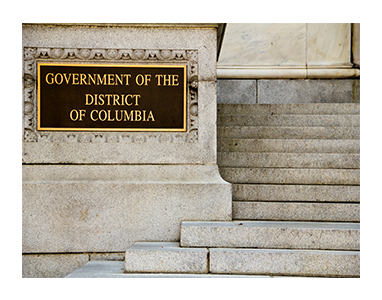
Liberation of the D.C. Official Code
Liberation of the D.C. Official Code. The D.C. Council has made it easier to access the laws of the District of Columbia. Last month, it launched the DC Code in an open source format. Now, anyone can read, search, and print the code without logging into a paid legal research platform. It is a huge technological step forward for the Council, and is the result of years of hard work by the Office of the General Counsel to the Council and the civic hacking community.
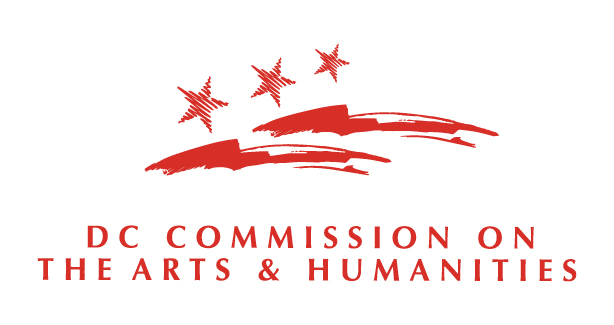
Kudos to the D.C. Commission on the Arts and Humanities!
Kudos to the D.C. Commission on the Arts and Humanities! The Open Meetings Act (OMA) requires that meetings of public bodies are “open to the public”; which means “the public is permitted to be physically present at the meeting.” (D.C. Code § 2-575(a)(1)). Absent a statute which states otherwise, the OMA does not mandate that public bodies allow public comment or participation in meetings. However, the OMA does not prohibit a public body from allowing the public from doing so. In the spirit of “good government” and “civic engagement” and without a statutory requirement that they do so, the D.C. Commission on the Arts and the Humanities (CAH) provides a 30 minute public comment period during the start of each meeting. The CAH allows up to 10 associations, individuals or organizations to request a 3 minute slot to speak. However, the speaking slots are on a first come first served basis and the request must be emailed to the CAH within 24 hours of the meeting.
Upcoming Trainings

September

October

November

*
Oct. 22 and Nov. 16 trainings to be confirmed by MOTA


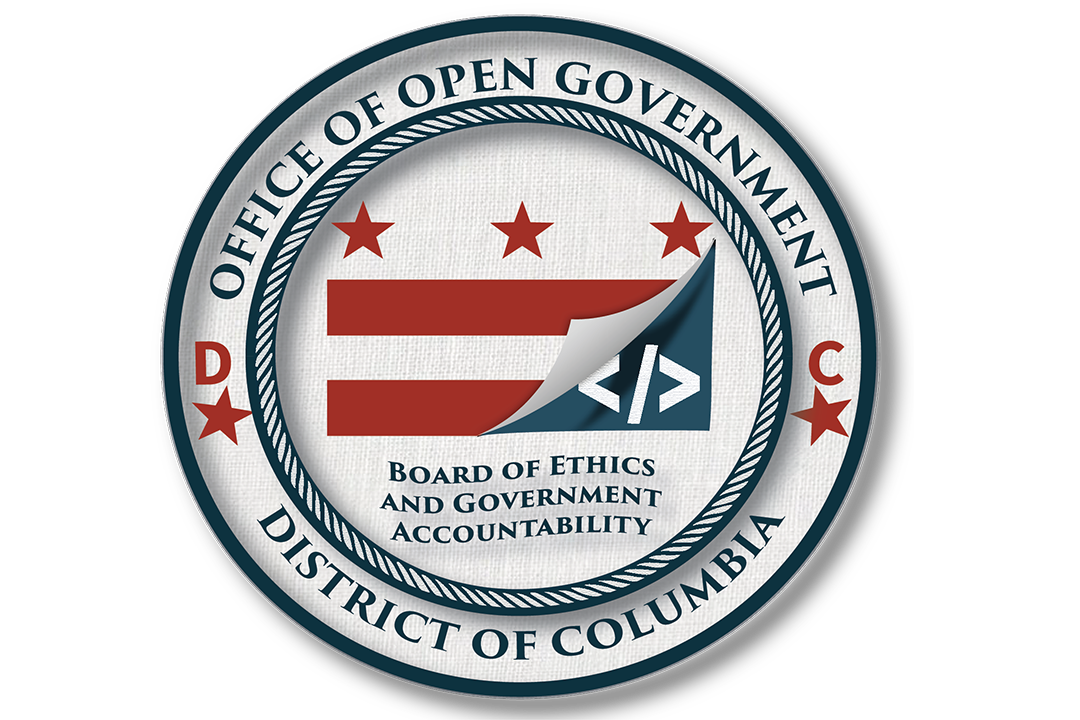
OOG provides advice to agencies and the public on complience with FOIA and the OMA.